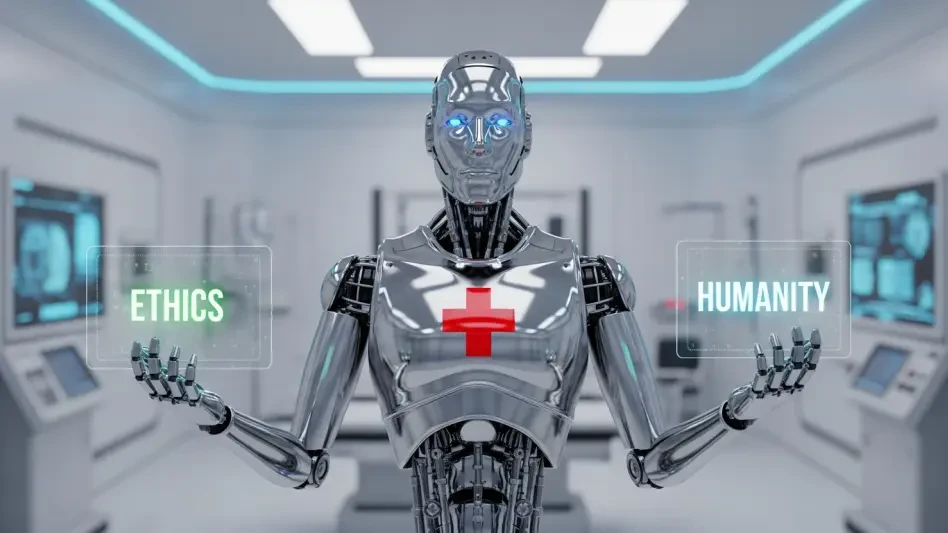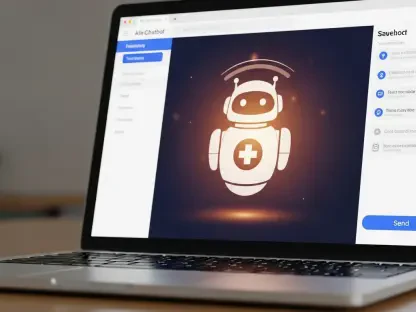In an era where artificial intelligence is reshaping healthcare at an unprecedented pace, a staggering concern emerges: how can technology advance without compromising the very humanity it seeks to serve? At the Association for Molecular Pathology (AMP) Annual Meeting held this year, this pressing question dominated discussions, drawing hundreds of researchers, providers, and policymakers to confront the ethical tightrope of AI integration. Held during a pivotal Friday morning session, the event spotlighted a keynote by Dr. Takunda Matose, a renowned bioethicist from Cincinnati Children’s Hospital, whose insights ignited a broader conversation on balancing innovation with moral responsibility. This gathering underscored the urgent need to address bias, data ethics, and human-centric design, setting a tone of cautious optimism for the future of healthcare technology.
Keynote Spotlight: Dr. Matose on Ethical AI Integration
The highlight of the AMP meeting was undoubtedly Dr. Takunda Matose’s plenary talk, which unpacked the ethical complexities of AI in healthcare with striking clarity. As a bioethicist deeply rooted in issues of healthcare justice, Matose urged stakeholders to pause the rush toward adoption and reflect on the moral implications of their tools. His central argument focused on the risk of sidelining human values if AI development prioritizes efficiency over equity, calling for a collective commitment to safeguard patient welfare.
Delving deeper, Matose critiqued the pervasive “more data is better” mindset in research, arguing that excessive data accumulation often leads to wasted resources with minimal impact. He proposed a shift toward focused, prospective studies that prioritize meaningful insights over sheer volume, challenging the audience to rethink entrenched practices. This perspective resonated as a pragmatic step to align technological progress with ethical intent.
Confronting Bias: A Core Theme of Expert Panels
Beyond the keynote, panel discussions at AMP tackled the thorny issue of bias in AI systems, framing it as an inherent trait rather than a mere glitch. Experts emphasized that bias, embedded in design choices and datasets, requires proactive identification and mitigation at every stage of development. The consensus was clear: transparency in acknowledging these limitations is critical to prevent harm, especially to marginalized groups.
A key takeaway from these dialogues was the push for diverse stakeholder inclusion to counteract systemic inequities. Panelists debated how to embed fairness into algorithms, highlighting that reactive fixes fall short compared to intentional design strategies. This focus on equity underscored a broader commitment to ensure AI serves all communities, not just a privileged few.
Hands-On Learning: Workshops on Human-Centric Design
Interactive workshops provided a practical dimension to the event, engaging attendees in designing AI tools with a human-first approach. Healthcare professionals and technologists collaborated on real-world scenarios, identifying gaps where patient needs are often overlooked in current systems. These sessions fostered a tangible understanding of how empathy must guide innovation, bridging theoretical ethics with actionable solutions.
Participants walked away with fresh perspectives on integrating ethical considerations into technology, sparked by group activities that simulated patient-centered challenges. The emphasis on active learning revealed a shared recognition that human involvement, when strategically applied, can elevate AI’s impact without introducing undue bias. This hands-on format proved invaluable in translating abstract concerns into concrete ideas.
Innovations on Display: Ethical AI Tools in Action
The event also featured demonstrations of cutting-edge AI tools crafted with ethical frameworks at their core, offering a glimpse into a future where technology and humanity align. Notable exhibits included systems for transparent data handling, ensuring patients understand how their information is used. These innovations stood as proof that ethical design can enhance trust while maintaining diagnostic precision.
Another standout was an algorithm designed to prioritize equity in healthcare outcomes, addressing disparities often exacerbated by biased data. Attendees explored how such tools could reshape clinical practices, reinforcing the event’s overarching message that ethical AI is not just aspirational but achievable. These showcases inspired optimism, demonstrating real-world applications of the principles discussed throughout the day.
Reflecting on the Path Ahead for Ethical AI
Looking back, the AMP 2025 meeting marked a defining moment in the discourse on AI in healthcare, bringing ethical challenges into sharp focus through compelling talks and collaborative efforts. Dr. Matose’s call for mindful integration, paired with expert panels and innovative displays, created a robust platform for dialogue that resonated with all attendees. The event illuminated the intricate balance required to harness AI’s potential without losing sight of human values.
As the industry moves forward, the next steps involve crafting regulatory frameworks that address data ethics and bias mitigation, ensuring technology evolves with accountability. Stakeholders must also prioritize ongoing collaboration, integrating diverse voices to shape AI tools that truly serve everyone. With these efforts, the groundwork laid at AMP offers a promising foundation for a future where healthcare innovation remains firmly rooted in humanity.









